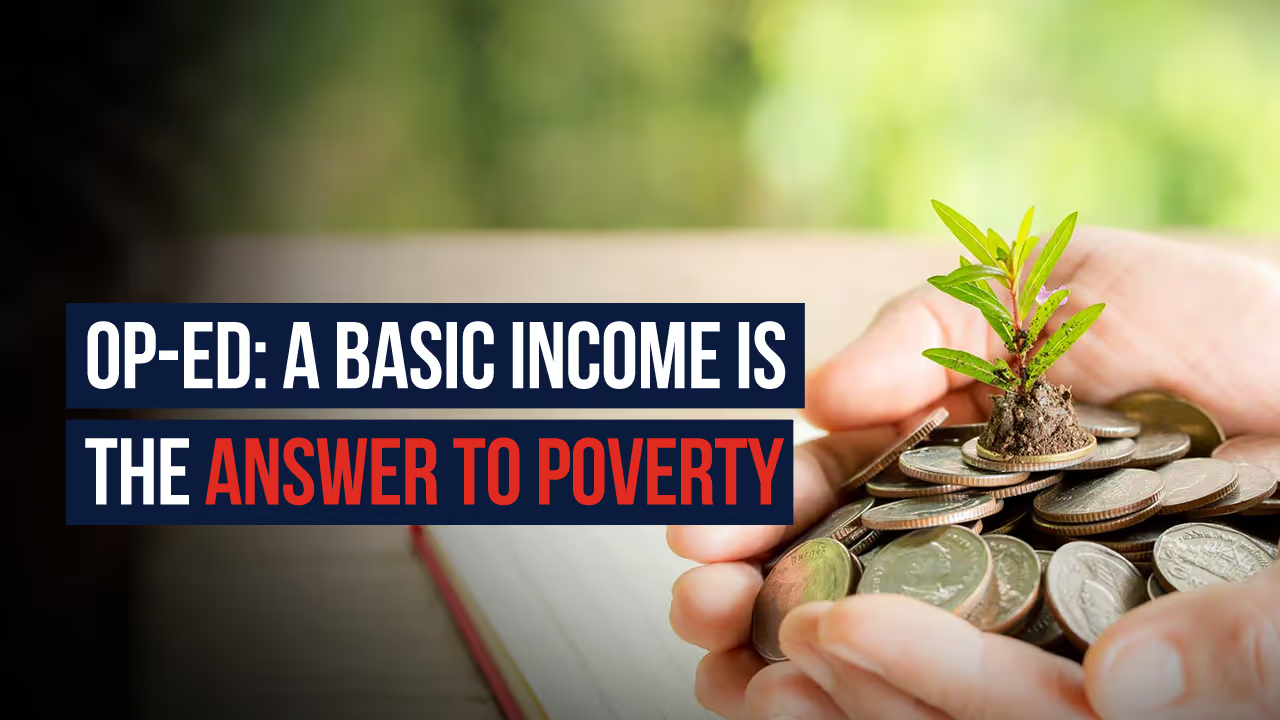The Atlantic Provinces Economic Council asked if Basic Income was the answer to poverty. The majority of their findings, along with these experts’ response says yes, it is.

By Tracy Smith-Carrier PhD, MSW and Wil Robertson
Basic income is too complex to implement. So the thinking goes in the latest release by the Atlantic Provinces Economic Council. Yet data from Statistics Canada in 2020 demonstrated that changes to the Canada Child Benefit – a basic income program for families – was largely responsible for a near 4% decline in poverty from 2019 to 2020 alone. Unlike the claim issued in the report that “the evidence on national long-term basic income programs is limited”, we do have significant evidence that negative income tax programs (a form of basic income) are effective. The CCB and Guaranteed Income Supplement in Canada amply demonstrate the efficiency and efficacy of providing income security for children and older adults in Canada—not to mention the reams of research on cash transfer programs globally.
The ’work disincentive’ argument (that people will stop working if they receive a basic income) also reared its head in the report, despite evidence that shows that people do not suddenly leave their jobs when they receive income support. Robert Gilbert and colleagues in 2018 examined 16 basic income programs around the world and found they had “no substantial impact” on labour market participation. The report also mentions the Canada Emergency Response Benefit (CERB) in addressing this narrative. Yet a recent report to Senator Nancy Hartling of New Brunswick debunked the false narrative that the CERB caused mass labour shortages.
Likely the biggest argument levelled against a basic income is that it would be too expensive. The APEC report lays out concerns that implementing a basic income would lead to widespread tax hikes and reductions in government expenditures, threatening its long-term viability. No consideration is given however to the savings that such a program would invariably accrue over time. Sustaining a system of poverty is hugely expensive. Addressing only the symptoms of poverty, as our systems are currently oriented to do, is costly, not only in dollar figures, but in human lives. A basic income, if offered at an adequate level to those who need it, could essentially eradicate poverty, with tremendous immediate and upstream cost savings.
The introduction of new taxes could indeed be helpful, but only if they target those with excessive wealth. The richest 1% collectively owned, in 2021, roughly 30% of the wealth in this country, according to researchers James Davies and Livio Di Matteo. Perhaps now is time to consider options to make our tax system more progressive. Alex Hemingway, in a policy note composed last year, suggested that imposing a modest tax (1% on net wealth of more than $10 million, 2% on wealth over $50 million, and 3% on wealth over $100 million) would raise $363 billion in Canada over 10 years. Taxing wealth is an area that others are considering also, including President Biden who has proposed a “Billionaire Minimum Income Tax” of not 3% but 20% for those making over $100 million. A basic income is not out of the realm of possibility.
There is nothing inherently complex about implementing a basic income program in Canada, we have done so in the past and will invariably need to do so again in the future. Hopefully for Canadians, in the Atlantic Provinces and across the country, this future isn’t too far off.
That future could in fact be closer than most realize. In Prince Edward Island, significant progress has been made towards a demonstration project to trial a basic income, an endeavour supported unanimously by the province’s legislature, including its PC Premier, Dennis King. In April, the Premier and other party leaders in PEI called on the federal government to help launch the project but Prime Minister Trudeau has yet to agree to move forward.
As the APEC report highlighted, bills C-223 and S-233, introduced by NDP MP Leah Gazan in the House and Independent Senator Kim Pate in the Senate, call for the establishment of a national framework for a guaranteed livable basic income – in essence to study and determine what a basic income would look like if we were to implement it across the country. If it is, no doubt we will see it that basic income is the answer to poverty we’ve been waiting for.
Co-authors:
Tracy Smith-Carrier PhD, MSW
Canada Research Chair (Tier 2) Advancing the UN Sustainable Development Goals & Associate Professor - School of Humanitarian Studies | Royal Roads University
Wil Robertson
Steering Committee Member, Coalition Canada Basic Income; Member of Basic Income Canada Youth Network; Organizer, Basic Income New Brunswick
